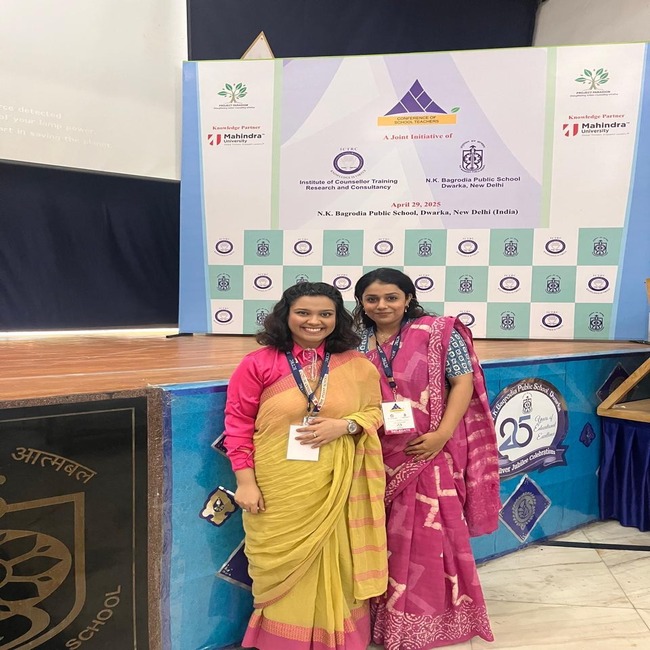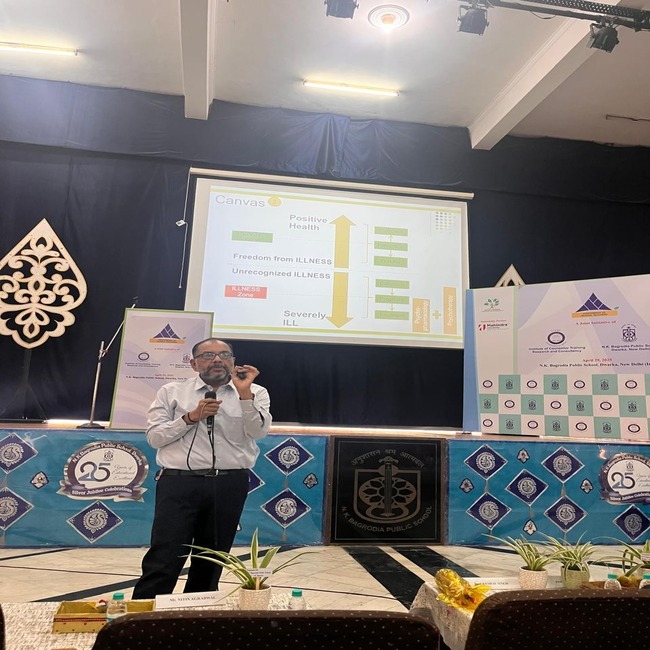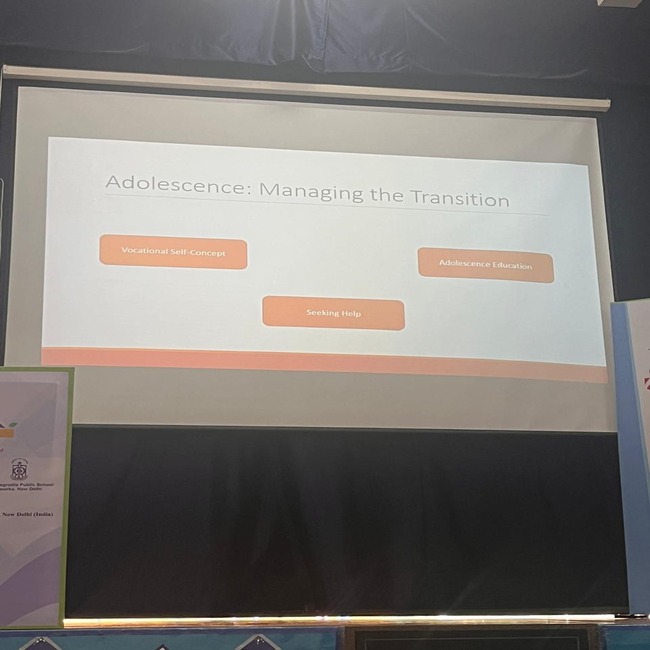Fostering Positive Mental Health in Senior School Students
On April 29, 2025, Ms Meghna Joshi (Psychodynamic School Counsellor) and Ms Vrinda Bansal (PGT Psychology cum Counsellor) participated in a citywide conference titled “Fostering Positive Mental Health in Senior School Students”, hosted at N.K. Bagrodia Public School, Dwarka. The event brought together school counsellors and educators from across the city, creating a vibrant platform for exchanging insights on the emotional and psychological well-being of senior school students.
The conference commenced with the ceremonial lighting of the lamp and a formal welcome address by Ms Anjali Kharbanda, Principal of N.K. Bagrodia Public School.
The inaugural session was led by Professor Keshav, who presented a rich conceptual framework on adolescence. Framing it as a phase of heightened inner questioning—particularly around identity, selfhood, and belonging—he invited educators to understand the developmental tasks of this age group with greater empathy and depth. Professor Keshav emphasised how adolescents today are growing up in an era shaped by rapid technological advancement, where the presence of tools like ChatGPT and AI is transforming learning and communication, even as unregulated social media use introduces new psychological risks. Issues such as cyberbullying and distorted body image—intensified by unrealistic beauty standards—were cited as examples of modern challenges. He advocated for an emotionally attuned curriculum that supports identity exploration and emotional literacy within school structures.
After a brief tea break, the second session was facilitated by Mr Aditya R. Nair, psychologist, who addressed the audience on the theme of understanding mental health issues in school settings. Through vivid clinical vignettes and the use of a thought-provoking video based on Kiley Kamlin’s work on early perception of safety in infants, Mr Nair illuminated the early developmental processes that shape emotional receptivity. He made a clear distinction between temperament—viewed as biologically rooted—and personality, which he described as malleable and shaped by context. His session explored a range of emotional and behavioral challenges commonly observed in schools, including depression, eating disorders, ADHD, and autism. By contextualising these conditions with real-life cases, he helped educatorsrecognise when professional intervention is warranted and when empathetic, informed observation might suffice.
Professor Keshav returned to conclude the conference with a session focused on supporting adolescents through key transitions. He explored three core areas: vocational self-concept, help-seeking behavior, and sustained emotional education. Emphasising the internal conflict students often experience around questions like “Who am I?” and “What do I want to become?”, he highlighted the anxiety tied to career-related identity. Professor Keshav urged educators to create open, non-judgmental spaces that encourage self-expression. He reminded the audience that not every student requires formal counseling; sometimes, a caring and attentive adult who listens with genuine curiosity can provide profound support.
The central message of the conference emphasised the limitations of viewing adolescent mental health solely through a biomedical lens. Instead, it advocated for a more nuanced, contextualized understanding of students’ lived experiences. Participants left with a reinforced awareness of the importance of listening, attunement, and the transformative power of emotionally responsive education. The event underscored the essential role educators and counsellors play in shaping school environments that not only educate but also heal, support, and empower young minds.















